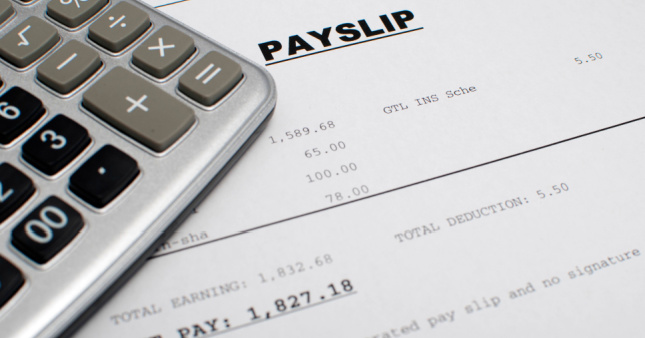
What are penalty rates?
Penalty rates are additional allowances and higher pay rates that employees in Australia may be entitled to when working on weekends, public holidays, overtime, early in the morning, and/or late at night, provided they are covered by an Award, enterprise agreement, or registered agreement.
The exact rate, multiplier and loading to be applied is outlined in the relevant industry Award or agreement.
History
Penalty rates have been a part of Australian employment and industrial relations since the 1800s. The original purpose of penalty rates was to discourage Sunday labour. As the name suggests, the goal of these rates was to act as a deterrent for employers, for encouraging Sunday labour.
However, penalty rates were first introduced nationally to Australia in 1947. The move was encouraged by various unions and state regulatory bodies, who argued that employees deserved a higher pay rate when asked to work outside normal hours. In 1947, a campaign by Australian Council of Trade Unions (ACTU) for national penalty rates resulted in a joint claim before the Court of Conciliation and Arbitration by ten separate trade unions. Workers represented included those in the railways, gas industry, manufacturing, and emergency services.
For the first time, a national definition of the term ‘penalty rate’ was introduced as being payment higher than normal to be made for work outside the prescribed limits. The court also awarded Saturday penalty rates for certain shift workers.
This landmark case established penalty rates as a permanent staple of Australia’s employment relations field.
Even with the post-war economic boom, changing consumer habits and an increased acceptance of flexible working arrangements, penalty rates remained firmly fixed within Australian society and are seen as a vital form of compensation for employees who work on weekends, public holidays and outside normal trading hours.
Still, over the past decade, the Fair Work Commission has been more inclined to amend penalty rates in line with changing societal expectations. The Fair Work Commission has opted to merge or reduce penalty rates for certain industry Awards. Some examples are the reduction of Sunday penalty rates in 2017 in the Retail, Fast Food, Restaurant, Pharmacy and Hospitality Awards.
Penalty Rates Australia
Employees may be entitled to a penalty rate when working:
weekends
public holidays
overtime
late night shifts or
early morning shifts
Weekend penalty rates
Weekend penalty rates are higher pay rates applied to employees who perform work on the weekend.
The purpose of weekend pay rates is to offer compensation for employees who work outside “normal” weekday hours. Not all workplace agreements or Modern Awards require payment at a higher rate. However, most will require an employer to pay at least 150% (time and a half rate) of the normal base wage for work performed on a Saturday and 200% (double time) for employees who perform work on a Sunday.
For example, casuals who aren’t shiftworkers get penalty rates when they work evenings, weekends, or public holidays in the Retail Award.
Monday to Friday- Casuals get paid 150% of their minimum hourly rate for ordinary hours worked after 6 pm Monday to Friday. This rate includes their casual loading.
Saturday pay rate-Casuals get paid 150% of their minimum hourly rate for ordinary hours worked on Saturday. This rate includes their casual loading.
Sunday pay rate- Casuals get paid 175% of their minimum hourly rate for ordinary hours worked on Sunday. This rate includes their casual loading.
Public holiday rate- Casuals get paid 250% of their minimum hourly rate for work on a public holiday. This rate includes their casual loading.
This information is available on Fair Work for all industries, depending on your Award.
Allowances And Extra Payments
Some employees are entitled to extra payments due to the nature of their job. This may apply to employees who do certain tasks or have a unique skill, use their own tools and equipment, or work in harsh or dangerous conditions. Employees may also be entitled to a meal allowance when working overtime.
An employee is entitled to allowances as compensation for:
tools and equipment
first aid kits
special clothing and uniforms
the cost of travel, fares and tollways
cars and phones provided by the company
associated costs for working in a particular industry
Some employees may also receive additional compensation in the form of annual leave loading, which is a percentage of their base wage paid to them when they take annual leave. This extra payment is meant to provide employees with additional financial support during their time off. An employer’s obligation to pay annual leave loading may be outlined in their workplace agreement or Modern Award. If you have any questions about your entitlements, don’t hesitate to reach out to us for guidance.
Frequently Asked Questions
What Does Penalty Rate Mean?
A penalty rate is a name for a higher pay rate or additional allowance. In Australia, employees covered by an Award, enterprise agreement or registered agreement may be entitled to a penalty rate when working on weekends, public holidays, overtime, early in the morning and/or late at night.
What Are Australian Penalty Rates?
An Australian penalty rate is a higher rate of pay that an employee may be entitled to. There are many penalty rates, and when and how they are applied depends on the employee’s relevant Modern Award, enterprise agreement or contract. If you’d like more information on what the penalty rates for your employee are, get in touch with Employsure on 1300 651 415.
What are Sunday Penalty Rates in Australia?
Sunday penalty rates in Australia refers to a higher rate of pay that an employee is entitled to when working on a Sunday. Whether an employee is entitled to a Sunday penalty rate, and the rate of extra pay, depends on the employee’s relevant Modern Award, enterprise agreement or contract. If you’d like more information on what the Sunday penalty rate for your employee is, get in touch with Employsure on 1300 651 415.
When Were Penalty Rates Cut in Australia?
Penalty rates gradually changed – some have been cut and some are increasing – between 2017 and 2020, in the Restaurant, Hospitality, Pharmacy, Fast Food and Retail awards. The last change was made in July 2020, affecting the Retail and Pharmacy Awards.
What Is Double Time and Half?
Double time and half refers to a penalty rate that pays two and a half times the normal rate. For instance, there may be a penalty rate that pays at 250% of the rate of a minimum wage for an employee working on a public holiday.
What Are Public Holiday Rates In Australia?
The public holiday rates in Australia are incredibly varied. The rate an employee is paid for working on a public holiday depends on their applicable Modern Award, enterprise agreement or individual contract. If you’d like more information on what the public holiday rate for your employee is, get in touch with Employsure on 1300 651 415.
What Are The Penalty Rates For Public Holidays?
Some employees working on a public holiday must be paid a penalty rate. This is higher than their minimum pay rate.
The rate an employee is paid for working on a public holiday depends on their applicable Modern Award, enterprise agreement or individual contract.
What Is The Difference Between Overtime and Penalty Rates?
Penalty rates are higher rates of pay that some employees are entitled to if they work:
- weekends
- public holidays
- late nights
- early mornings
Penalty rates are different from working overtime. Overtime is when your employee works more than 38 hours per week or outside the ordinary hours listed in the employee’s agreement.
When Does Double Time Apply in Australia?
Double time application will depend on the award and agreement in question.
Do Employers Have To Pay Penalty Rates?
Whether or not you need to pay penalty rates to your employees will depend on the modern award that applies to your business. You must ensure that you are aware of the relevant laws surrounding penalty rates.



